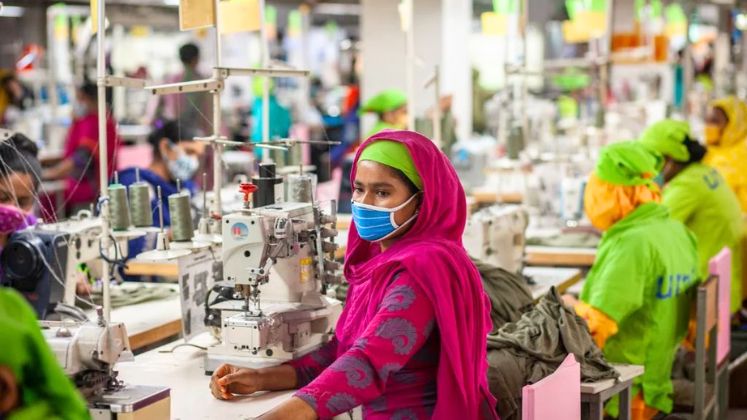
Khubdho Naree Shomaj, a coalition of 21 organisations, held a rally in Shahbag on Monday, advocating for a uniform democratic labour law and equal wages for men and women. The collective presented eleven key demands aimed at influencing the reports of the Labour Reform Commission and the Women’s Affairs Reform Commission.
Among the notable demands were six months of paid maternity leave for all working women, legal recognition for both formal and informal labourers, and the proper enforcement of anti-sexual harassment policies and complaint mechanisms. The group also called for relaxed conditions for forming trade unions to ensure freedom of expression and effective measures to protect expatriate female workers.
Taslima Akhter, president of the Bangladesh Garment Sramik Samhati, highlighted a 2009 High Court directive mandating the establishment of active anti-sexual harassment cells in educational institutions and workplaces.
Speakers at the rally underscored the prevalent societal tendency to undervalue women’s work, which often results in lower wages compared to their male counterparts. They expressed concern over the government’s failure to secure the safety of expatriate female workers, leaving them vulnerable to violence.
Additional demands included recognizing women as labourers in agriculture and fisheries, enacting laws to protect the rights of domestic and sex workers, and establishing day-care centers, food canteens, and washrooms in workplaces. The group also called for proper training programs for women entering the labour market.
The AKOTA Women’s Forum expressed solidarity with the rally’s demands. Notable speakers included Narigrantha Prabartana vice-president Shima Das Shimu, university teacher Layeqa Bashir, and Nari Mukti Kendra president Shima Dutta.
The rally aimed to amplify the voices of women workers and push for necessary reforms to ensure their rights and safety in the workplace.






